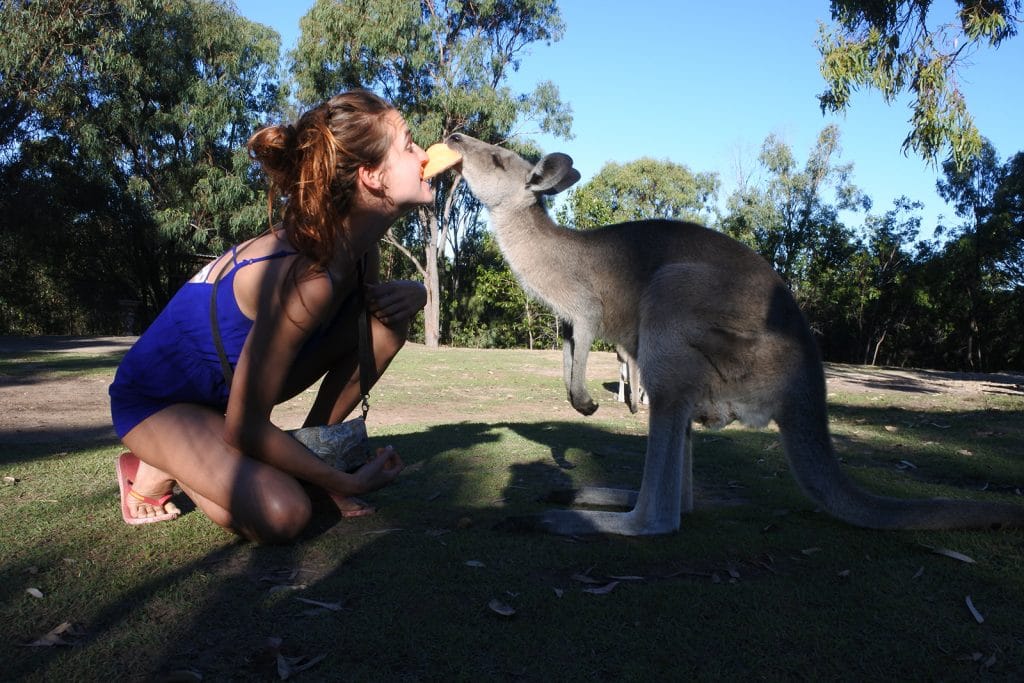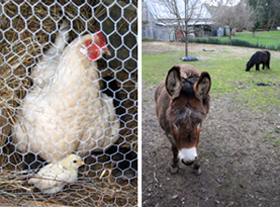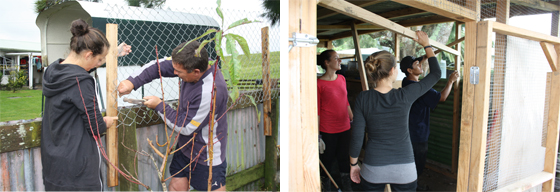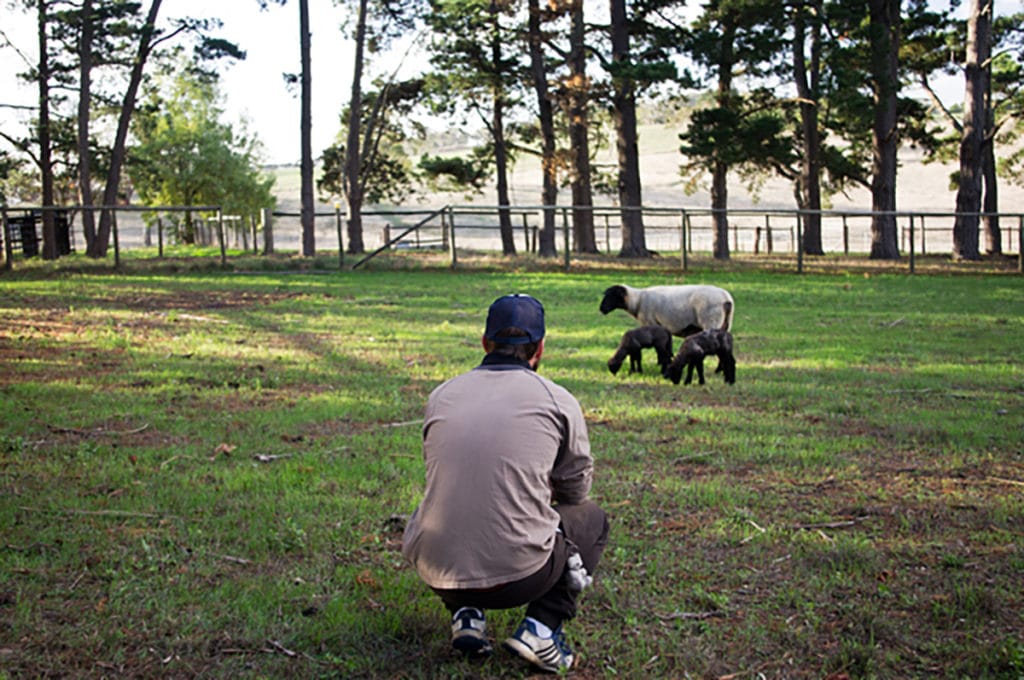Volunteering in this diverse and beautiful country offers a unique blend of adventure, cultural exchange, and the opportunity to contribute positively to various causes. Whether you’re passionate about wildlife conservation, community development, or environmental sustainability, Australia has a plethora of options to choose from. Ever heard of Wwoofing? What about Helpx? It’s a bit like the big brother of Couchsurfing (where you stay for free with a local). Instead of staying at somebody’s house for free, you do some volunteer work and lend a hand to the landlord. Read on to know a bit more about the different options to volunteer in Australia
Table of Contents
Types of Volunteering Opportunities
Australia is a unique country, particularly vulnerable to the impacts of climate change. In the recent few years, the country has seen more frequent bush fires, flood, warming oceans. You can be involved in protecting the environment, wildlife or even helping the locals to rebuilt affected areas.
There are many organisations around the world and in Australia helping you to become a volunteer. The endangered Great Barrier Reef, one of the seven natural wonders of the world, always needs volunteers. Australia’s native wildlife also needs your help to rehabilitate sick, injured native wildlife.
The best way to find the right volunteer opportunity in Australia is to find the organisations and actions that motivate you. Try to be clear about what you want out of your volunteering experience and the skills you can bring in. Then you can easily register online to become a volunteer. Know that you usually have to pay a fee, which helps the organisation in its actions.
What is Wwoofing, HelpX and WorkAway?
WWOOF = World Wide Opportunities on Organic Farms
What It Is: WWOOF connects volunteers with organic farms and growers. Volunteers work in exchange for food, accommodation, and the opportunity to learn about organic lifestyles.
How It Works: You typically work for 4-6 hours a day helping with farming and household tasks. In return, you receive free room and board. This exchange provides an immersive experience in sustainable agricultural practices.
Getting Started: To join WWOOF Australia, you need to sign up for a membership, which gives you access to a database of participating farms across the country.
HelpX
What It Is: HelpX is broader than WWOOF, connecting volunteers with various types of hosts, not just farms. These can include hostels, B&Bs, and even sailing boats.
How It Works: Volunteers or “helpers” exchange a few hours of work for accommodation and meals. Tasks can range from painting to reception work in hostels.
Getting Started: Sign up on the HelpX website to browse listings and contact hosts. Membership provides detailed information about each host, including reviews from other helpers.
WorkAway
What It Is: Similar to HelpX, Workaway offers a wide range of volunteering opportunities worldwide, including Australia.
How It Works: Workaway focuses on cultural exchange; volunteers help out with various tasks for a few hours a day (usually 4-5 hours, 5 days a week) in exchange for food and accommodation.
Getting Started: Create a profile on Workaway, browse opportunities, and use the platform’s review system to find a reputable host.
What are the benefits of volunteering?
Volunteering allows volunteers to work for hosts, who in return for this work (5 days / week, 4 to 6 hours / day, on average) provide free accommodation and food. For those who do not know this system, it is an incredible experience, which has only advantages (most of the time).
You will be able to develop your network, because even if you work without pay, your hosts will undoubtedly know other people in Australia. You may be offered a paid job a few weeks later. Because yes, as elsewhere, networking is very important in Australia.
It is an amazing way to go to places you would have never visited if not for volunteering. In addition, you will live a unique experience, discover activities that you will certainly never have discovered before, sometimes with animals in remote regions and in areas that are surely not your favorite areas (painting, gardening , general work on the farm).
It is also a great way to save money as you don’t have to pay for anything during your stay at your host…
You will also meet locals and lots of over travellers that might become close friends! They are mostly people who have voluntarily asked for your help, because they like to share, discuss, meet travellers and talk about their country.
Volunteering in Australia is not just about lending a helping hand; it’s an enriching experience that offers numerous benefits. It allows you to develop new skills, understand different cultures, build international networks, and gain a deeper appreciation of global issues. It’s also a fantastic way to make your travel more meaningful and fulfilling.
Can volunteer work count to extend your Working Holiday Visa?
The short answer is YES but in some areas only.
Bushfire recovery work
You can count bushfire recovery work in declared bushfire affected areas as specified work. The work can be:
- construction, farming, or any other work in association with recovery or restitution of land, property, farm animals or wildlife
- support services or assistance to people living, working or volunteering in the affected areas.
Examples of eligible paid or volunteer specified work in bushfire recovery:
- re-building fences destroyed
- caring for wildlife
- demolition of buildings, trench digging, land clearing and earth moving
- residential and non-residential construction or renovation/repair, including of roads, footpaths, bridges, parking lots, fencing, railways, dams, irrigation systems, sewage and storm water drainage systems.
Natural disaster recovery work
You can also count work assisting in the recovery of natural disasters (floods, cyclones and other severe weather events) as ‘specified work’. The work can be paid or voluntary.
This applies to recovery work carried out from 31 December 2021 in areas affected by flood, cyclone or severe weather events.
Examples of eligible paid or volunteer specified work in natural disaster recovery work:
- general cleaning up, including wiping down items, moving and cleaning furniture and appliances, hosing out properties and outdoor areas or mopping floors and transportation of rubbish
- demolition of buildings, trench digging, land clearing and earth moving
- residential and non-residential construction or renovation/repair, including of roads, footpaths, bridges, parking lots, fencing, railways, dams, irrigation systems, sewage and storm water drainage systems
- work for charitable organisations assisting flood affected communities, including administrative, technical, and coordination support
- administrative support, including customer service and working in call centres providing flood recovery support
- transport support, including delivering food, medications or other essential items to flood victims
- caring for, transporting and managing affected animals and related equipment.
How to find volunteering opportunities in Australia?
Wwoofing
If you’re interested in a Wwoofing-type volunteer experience in Australia, you can find hosts easily. To do this, register with the “Wwoof” association. Registration is quick and easy and is done directly on their website. In a few clicks you will have access to the contacts of the hosts throughout Australia. You will need to create your profile with information about yourself, what you are looking for, past experiences etc.
Registration costs $70 per person and is valid for two years in Australia. You can also opt for the couple or 2 person option which is $120 for 2 years. Your annual subscription gives you a basic insurance policy that covers you during your stay (wwoof only). But be careful, it does not include civil liability.
This registration gives you access to the list of all Wwoofing hosts in the country with a description of their activity, their hosting conditions and their contact details. You will be able to view the hosts on a dynamic map. A mobile application also allows you to access all their services quickly.
HelpX
The second option is registering on the Helpx.net site as a Premier host or helper for $20. The registration is valid for two years in every country of the world, for a single person or a couple. You will need to create your profile with information about yourself, what you are looking for, your past experiences etc.
You will have access to the host list where you find all available host addresses, as well as a description of their activity and hosting conditions.
WorkAway
To get started, you need to create a profile on the Workaway website, detailing your skills, interests, and travel plans. There is a small subscription fee involved. It costs €49 for a single person or €59 for a couple or two friends for a one-year membership. This fee gives you access to the platform’s extensive list of hosts and the ability to contact them directly.
Once subscribed, Workawayers can search for hosts in Australia, filtering opportunities by location, type of work, and duration.

Specialised websites
There are many sites dedicated to volunteering. The only downside is that many of them offer paid assignments. Here are a few examples:
- Www.volunteerworld.com
- Goeco.org
- Servicevolontaire.org
- Australianvolunteers.com
- Conservationvolunteers.com.au
Facebook groups
Facebook groups are full of good addresses. Volunteer travellers often post an announcement when they leave their host. The aim is to find new volunteers to replace them. There are also dedicated groups for volunteering (use the search bar).
Farms, hotels, private individuals… how to choose your host?
Before “applying” to a future host, ask yourself a few questions:
- What jobs really interest me?
- Is the property not too isolated?
- What area am I looking to gain experience in? Rather in contact with animals or plants, or rather in the building or hotel industry?
- What are my physical labor limitations?
If there’s a host you’d like to volunteer for, contact them and offer your help. Schedule the days and hours you work with your host prior to arrival, to avoid surprises. You normally work 4 to 6 hours each day in return for all of your meals and accommodation.
As you can see, volunteering in Australia is not the same as staying at a hotel. The work is often physical and outdoors, so it’s not a vacation! Before you start the adventure, take the time to contact your host, discuss housing arrangements, working conditions … Unfortunately, there are people trying to abuse the system, so be careful! Before making an appointment with your host, seek advice from previous volunteers, ask questions, and rather choose hosts who publish photos of their property. Some people also claim they would be able to renew your WHV, which is not possible anymore – so be careful!
Whatever the case may be, the most important thing about volunteering in Australia is meeting people and exchanging experiences. Most of all, it is a matter of feeling good. So if it feels good, go for it!
How to be accepted by a host?
Hosts with nice offers will often find themselves with a lot of requests and will have to make a choice. To give you the best chance of being selected, complete your profile.
Don’t hide your face, having a decent profile can definitely help you stand out in the volunteers list! To have better chances of finding a place, carefully complete your profile description, talk about yourself, what you like to do and what motivates you to volunteer. If your potential host likes your personality or interests, it will surely open doors! The whole thing is based on trust, so it is important to get along with your host and be on the same wavelength.
Having references from other hosts is also a real plus. Always make sure that things go well with your hosts so that they can then give you a good reference, very useful for your next volunteering experience. The more complete your profile, the more chances you will have!
Experiences as a volunteer in Australia
Alicia, Wwoofer in Australia

“The type of work you are going to do depends on the hosts. At the farm or in the house, I did the house work and mowed the lawn. Luckily, they suggested a few more rewarding jobs, such as helping with the construction of enclosures, planting of seedlings, harvesting, as well as looking after and cuddling the farm animals. In hotels, you obviously expect to do more housekeeping, to welcome guests at the reception, and to fulfil administrative tasks.”

Claudia and Jeremy, Wwoofing in South Australia
“Seduced by a particular farm profile, we choose the town of Nairne in Adelaide Hills area. In this region, the offers for volunteering are varied. From homestay (missions in homes, usually in cities), to childcare, but above all a majority there are offers for work on animal and fruit/vegetable farms in the region. Our hosts are a family of 5. The mother is a photographer and the father, through successful financial investments, has fulfilled his childhood dream by becoming the owner of several farms.
Our missions are from the most classic for a farm (painting, maintenance of enclosures), to other more original ones (sheep shearing, cooking, transfer alpacas and lambs to enclosures, look for runaway chicks…).
During these 4 weeks, we meet the parents of our hosts who invite us to Brisbane. We also meet friends of the family. One of whom will give us discounts at the hotels he runs in Australia and Bali. We were offered tours in Port Lincoln and the Barossa Valley wineries. And all this in exchange for a few hours caring for lambs, chicks and other farm animals! Thanks to these few weeks of Wwoofing, we were given employer references that helped us find painting jobs in Queensland. So volunteering if always a good opportunity to meet people and create a network in Australia !”
Updated 14/05/2024
























